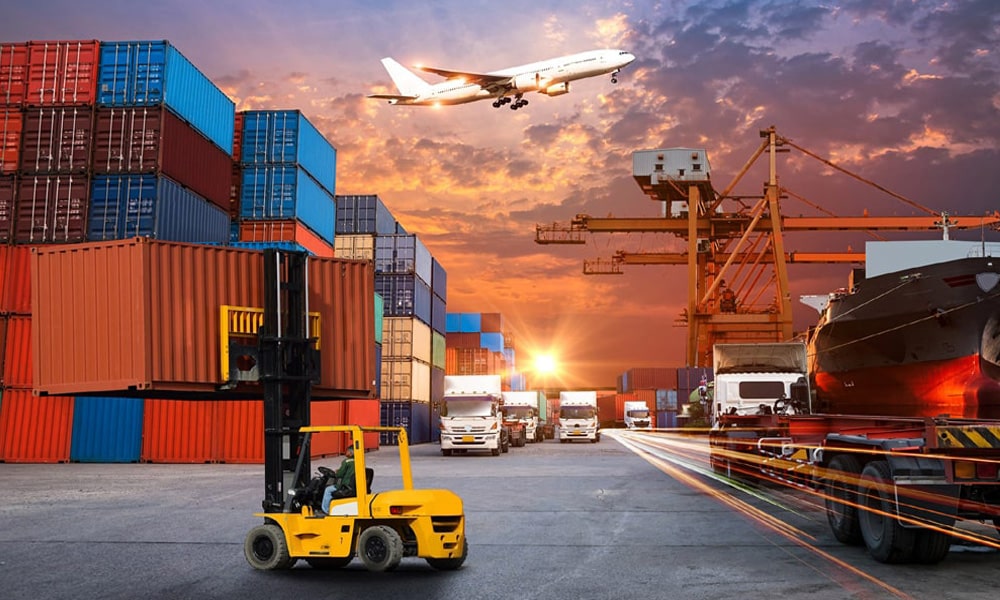Global supply chains are complex interconnected ecosystems involving many parties – suppliers, manufacturers, distributors, retailers, etc. Coordinated and transparent operations often result in inflated costs, delays, and fraud. Supply chain operations can be optimized with emerging technologies like blockchain. All parties can access a real-time tamper-proof ledger of transactions using blockchain.
Streamlined traceability of goods
When items such as raw materials or pharmaceuticals change multiple hands across the supply chain, it becomes difficult to trace origins and verify authenticity. An immutable ledger records each transaction on a blockchain. This ensures provenance by tracing goods back to their source. It also allows quick recalls of defective products. Supply chains with blockchain gain unprecedented visibility. Smart contracts are programmable blockchain protocols that execute agreements automatically when conditions are fulfilled without third-party involvement. In logistics freight on board, they enable instant release of payment when a shipment is confirmed delivered, expedite insurance claims, or transfer ownership titles.
Blockchain entries are cryptographically validated providing tamper-proof digital records. This eliminates reliance on paper-based documentation like invoices or bills of lading which are forged. Records of delivery acknowledgment, customs clearance, or payments on the blockchain are immutable. It reduces fraud risk, illegal diversion of goods, and dispute delays. Unknown trading partners can trust digital verification on the blockchain.
Greater security of sensitive information
When shipping goods of high value or hazardous materials, security is critical. Blockchain’s decentralized structure eliminates central points of failure for hackers. Inefficient processes, audits, and dispute arbitration can be automated and transparent. Real-time tracking of goods lowers inventory costs due to minimized losses. Cash cycles shorten, capital needs decrease. Collaboration also reduces logistics infrastructure costs for all participants with blockchain.
Overcoming challenges in adoption
While the benefits are tremendous, certain challenges to enterprise adoption of blockchain must be addressed:
- Lack of standardization – Multiple competing platforms with no dominant standard yet.
- Integration concerns – Seamlessly connecting blockchain with existing corporate systems.
- Scalability limitations – Processing large volumes of transactions.
- Privacy regulations – Handling sensitive data compliantly on an open ledger.
- Talent shortage – Scarcity of blockchain experts to develop solutions.
- Cultural resistance – Getting buy-in from employees wedded to legacy processes.
- Unclear ROI – Developing sound business cases.
Driving mainstream adoption
Educating stakeholders on blockchain benefits and creating a change management strategy.
- Starting with limited pilot deployments focused on pain points before expanding.
- Incentivizing trading partners in their ecosystem to participate via added benefits.
- Supporting the development of standards through industry groups.
- Building in-house technical expertise on the blockchain or working with vendors.
- Measuring performance metrics before and after implementation to quantify ROI.
As more enterprises recognize the advantages, blockchain will enter the mainstream in the next few years altering logistics as we know it.


 How to Choose the Best Dental Products for Your Needs?
How to Choose the Best Dental Products for Your Needs?  Common Entry Points for Pests in Homes
Common Entry Points for Pests in Homes  Floral Arrangements: Pairing Flower Vases with Artificial Flowers
Floral Arrangements: Pairing Flower Vases with Artificial Flowers  Efficiency Hacks with Material Handling Equipment: Power Up Your Workshop
Efficiency Hacks with Material Handling Equipment: Power Up Your Workshop  Unlock Your Business Potential with the Leading Digital Marketing Agency in Bristol
Unlock Your Business Potential with the Leading Digital Marketing Agency in Bristol  The Ultimate Guide To Vulcan Cladding: Benefits And Applications
The Ultimate Guide To Vulcan Cladding: Benefits And Applications  Beyond the Diamond: Selecting Alternative Gemstones or Opting for No Stone at All
Beyond the Diamond: Selecting Alternative Gemstones or Opting for No Stone at All  7 Unique Tips to Hire the Best Accountant for Your Company
7 Unique Tips to Hire the Best Accountant for Your Company  Discovering The Development of Dating Apps
Discovering The Development of Dating Apps 